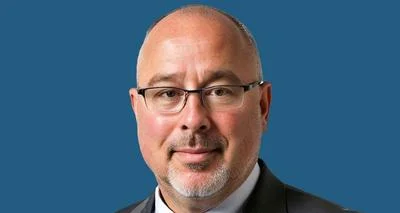A Litchfield attorney who serves as the Republican State Central Committee Chair for Illinois’ 13th Congressional District says the flat tax provision in the state constitution should remain right where it is, opposing the opinion recently expressed by U.S. Department of Revenue Director David Harris that the beginning sentence of Article 9, Section 3 of the Illinois Constitution should be eliminated.
“’A tax on or measured by income shall be at a non-graduated rate.’ This is the sentence Governor J. B. Pritzker and the Democrats seek to obliterate in the 2020 General Election,” Frederick Floreth pointed out in an email to the Macon Reporter.
A former state representative from Arlington Heights, Harris said in an interview with WCIA that the House Republicans’ hardline opposition “is bad for their constituents.” Republicans assert that the flat tax prevents taxes from being raised on everyone, while Pritzker and his supporters are pushing for a graduated rate structure they claim will escalate taxes on the state's highest earners.

Republican State Central Committee Chair Frederick Floreth
According to Floreth, the current flat income tax is fair.
“The more you make, the more you pay, but at the same rate as all Illinoisans,” he said. “Everyone who has Illinois net income, above their Illinois exemptions and credits, is taxed something.”
Floreth stated that the governor’s graduated income tax proposal would invite “bracket creep.”
“Once the Illinois Constitution is amended to allow ‘progressive’ tax rates, the General Assembly at any time can make the brackets whatever they want,” he said. “Pritzker’s proposal won’t bring in the revenue he projects, and/or the Illinois Democrats will conclude the state government needs even more money, because, for one, there are ways for the very wealthy to shift their income to either tax-free investments or divert their assets into areas that increase their wealth, but do not generate income; and second, Illinoisans with million-dollar incomes will simply relocate to a state with low or no income tax.”




 Alerts Sign-up
Alerts Sign-up